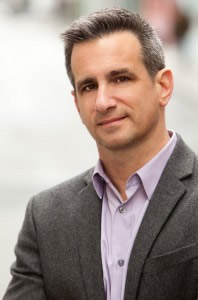
|
AIDS 2012: Bringing It Home
By Neil Giuliano , Chief Executive Officer, San Francisco AIDS Foundation
The AIDS 2012 Opening Session is less than three months away. Between now and then, we will continue to blog
about the US government's participation at the conference. We encourage you to also read blog posts from our non-federal
colleagues. AIDS 2012 is a conference where we all come together - public, private, non-profits. The San Francisco AIDS Foundation (SFAF) has been a pioneer in using new media in response to HIV. Along with several other
community and federal partners, SFAF is also working with AIDS.gov to plan a satellite meeting about
the role of new media in response to HIV/AIDS. We asked SFAF Executive Director Neil Giuliano to
share his thoughts on AIDS 2012.
 San Francisco AIDS Foundation marks
its 30th year this month. The foundation was created in response to the community's desperate need for facts at a time when our loved ones
were sick and dying and we had nothing but questions. In the thirty years since , we've
been able to answer those questions and share life-saving knowledge about HIV infection and treatment. We've also learned that, to
end HIV/AIDS, we must address factors that put people at risk in the first place, such as stigma and discrimination, substance
use, poverty, and homelessness. San Francisco AIDS Foundation marks
its 30th year this month. The foundation was created in response to the community's desperate need for facts at a time when our loved ones
were sick and dying and we had nothing but questions. In the thirty years since , we've
been able to answer those questions and share life-saving knowledge about HIV infection and treatment. We've also learned that, to
end HIV/AIDS, we must address factors that put people at risk in the first place, such as stigma and discrimination, substance
use, poverty, and homelessness.
At AIDS 2012, researchers, care providers, advocates, and community members will bring the International AIDS Conference back to the
United States for the first time since 1990. I look forward to hearing about advances in pre-exposure prophylaxis (PrEP), gene therapy,
vaccines, and other biomedical strategies that hold promise for curbing or even curing HIV. I also anticipate reports of new
antiretroviral drugs to treat those already living-even aging-with the virus.
But I will be listening for something else, as well-for lessons I can take home to help the foundation's clients and others
we serve to:
- Get tested . Factors that contribute to HIV risk also stand in the way of getting tested, and testing late means starting treatment late, after HIV has already damaged the immune system. It also means greater likelihood of transmission, especially during the early "acute infection" stage when virus levels are highest. I'll be listening for news about ways to overcome barriers to testing and ensure that everyone knows their current HIV status.
- Get into-and stay in-appropriate care . New antiretroviral treatment guidelines announced last month by the Department of Health and Human Services recommend that everyone diagnosed with HIV start antiretroviral treatment, regardless of CD4 count, to preserve immune function and to help prevent new transmissions. I hope to hear about strategies for connecting people with medical care and helping them stay engaged with their care providers.
- Get the most out of their meds, both for HIV health and HIV prevention . Antiretroviral drugs can save lives and even prevent new infections-but only if people take them. I'll be on the lookout for news about ways to help people get the most from their meds, including support strategies to help cope with HIV stigma, improve communication with medical providers, deal with problematic use of alcohol and other drugs, and overcome other obstacles to adherence.
Years of advocacy around condoms taught us what PrEP studies and other clinical trials are reiterating now: Treatment and
prevention tools are only effective when people are able to use them effectively. The first messages around condoms for HIV prevention
were developed by community members trying to protect themselves and their partners. Today, we must again tap our communities'
wisdom to make the most of the prevention and treatment tools we will hear about at AIDS 2012.
The response to HIV/AIDS began in the community. And that's where we will end HIV/AIDS.
###
Source: Blog.AIDS.gov
|